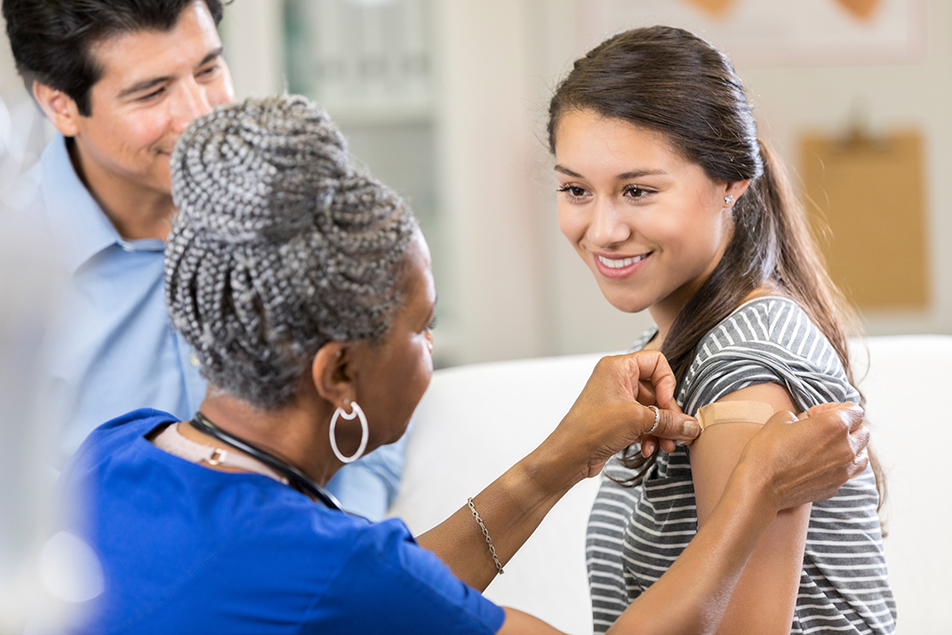
Every year, an average of 264 cases of cervical cancer are diagnosed in Indiana. Of those cases, an average of 88 Hoosier women will die as a result of the disease. The good news is that women, and men, now have the power of prevention at their disposal through a vaccine that stops the underlying cause of this cancer before it ever has a chance to start.
“We can’t overstate the impact that this vaccine can have on women’s health,” Caitlin Ryser, MD, PPG – OB/GYN said. Dr. Ryser has more than 17 years of experience in the field of women’s health. “The HPV vaccine is a real game-changer, and one that we want to educate our patients about.”
The human papillomavirus (HPV) is the single biggest risk factor for developing cervical cancer and, surprisingly, more than 80 percent of sexually active men and women are carrying the virus in their bodies at any given time. Normally, if a carrier has a strong, fully functioning immune system, the virus clears the body without any noticeable effects. But for some, especially those who smoke or have compromised immune systems, the virus can appear later in the form of cervical, rectal or oral cancer. These are the cases healthcare providers want to prevent.
According to the Centers for Disease Control and Prevention, the American Academy of Pediatrics, the American Academy of Family Physicians and the American College of Physicians, all boys and girls ages 11 to 12 should be vaccinated against HPV. The vaccine itself is administered in a scheduled series of 2 or 3 shots, depending on the age of the patient which can range from 9 to 26 years of age. The vaccine is only effective if it is administered before a patient becomes sexually active.
Ryser mentioned that there are lots of rumors, especially on social media, trying to link the vaccine to negative side effects like seizures, blood clots or paralysis. Fortunately, there is no data showing a credible link to an increased likelihood of any of these. Some of the minor side effects that may be experienced include pain, swelling or redness at the injection site.
“We know that women need to eat well, not smoke, and to go to their provider for routine screenings. But this vaccine is a really powerful tool that we have in our toolbox now, and it’s one that we want parents and women to be aware of,” Dr. Ryser said. “Making a positive impact on the health and wellbeing of our patients in the future is in our hands right now.”



